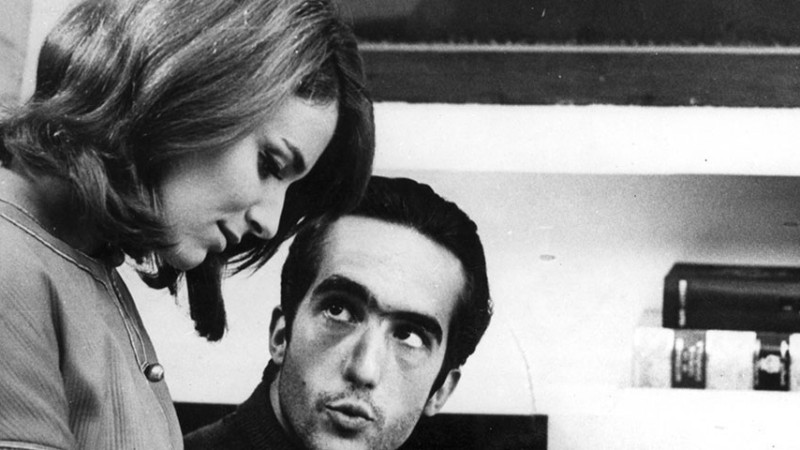DANTE NO ES UNICAMENTE SEVERO
"Dante deliberately lays bare its own mechanics, deploys characters devoid of psychology, and uses digression and fragmentation as narrative models. We enter a space in which dream and reality become one … and the preeminence of form over content is realized." – Film Comment
If the Escuela de Barcelona had a fiction film manifesto then Dante no es únicamente severo is it. Joaquim Jordà and Jacinto Esteva Grewe's wild and free-associative cinema trips through a giddy spectrum of Buñuelian storytelling, as a beautiful wife (Romy, portraying a '60s Scheherazade) unleashes a stream of bizarre tales, jokes and delicious non-sequiturs upon her husband (Enrique Irazoqui, star of Pasolini's The Gospel According to St. Matthew).
Playing like a pop art cocktail of Miguel de Cervantes, Lewis Carroll and Roberto Bolaño – if it'd been directed by Godard, complete with a sample from Pierrot Le Fou – the film dazzles with its serpentine, nonsensical, and often very funny stories, strange experiments in colour and light, and off-kilter, shapeshifting sound. Deliberately baffling but also extremely playful, Dante no es únicamente severo is an explosive pop manifesto, a surrealist maze of allusions, and a truly unique experience.
"Dante ruffled the feathers of the traditional left, challenging received ideas on aesthetics and politics. Alongside Pasolini, Metz and Makavejev, Jordà and Esteva situated the Barcelona School firmly within the emerging revolution in cinema and ideology." – Senses of Cinema
Print courtesy of Filmoteca de Catalunya


